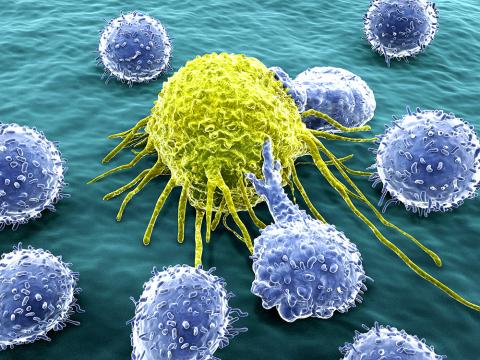Valo Therapeutics acquires PeptiENV technology from the University of Helsinki

Oxford, UK and Helsinki, Finland, 2 September, 2019.
Valo Therapeutics Limited (Valo Tx), an immuno-oncology company developing tumour antigen-coated oncolytic viruses as therapeutic vaccines, today announced that it has licensed proprietary PeptiENVTM technology from Helsinki University that enables the coating of enveloped oncolytic viruses with tumour associated antigens. Valo Tx previously in-licenced its PeptiCRAdTM technology for use with adenoviruses from the University of Helsinki. PeptiENV is expected to improve the therapeutic response to enveloped oncolytic viruses in the treatment of multiple forms of cancer. A study[1] published last year demonstrated the functionality of PeptiENV in conjunction with oncolytic vaccinia virus and herpes simplex virus, of which T-VEC is an example, approved for the treatment of metastatic melanoma. The data indicated that activation of a tumour specific immune response against cancer cells is more effective with PeptiENV when compared to uncoated enveloped oncolytic viruses alone.
Professor Vincenzo Cerullo, the inventor of both the PeptiCRAd technology with Dr Cristian Capasso and PeptiENV with Dr Erkko Ylösmäki, explains: “One of the biggest hurdles in the clinical use of cancer vaccination is being overcome through the ability to expose cancer cells to immune surveillance using checkpoint inhibitors. As the neoantigen field continues to explode, the focus is on the identification of potent adjuvants to enable the activation of a cancer specific CD8+ T cell response that is strong enough to completely clear cancer cells. Oncolytic viruses in combination with neoantigens are potent stimulators of an immune response and therefore make excellent adjuvants.”
Dr Michael Stein, CEO of Valo Tx commented further: “We are excited by the potential of the PeptiENV technology to expand the capability of the PeptiCRAd cancer vaccination platform by enabling its application across enveloped viruses. This acquisition of novel IP is a natural extension of our approach to develop new and improved therapeutic options for cancer patients.”
The use of different viruses carrying tumour-specific antigens and neoantigens has been shown to significantly enhance the tumour-targeted immune response and are expected to deliver effective clinical responses when used in combination with checkpoint inhibitors.
[1] Erkko Ylösmäki et al. Personalized Cancer Vaccine Platform for Clinically Relevant Oncolytic Enveloped Viruses. Molecular Therapy (2018). https://doi.org/10.1016/j.ymthe.2018.06.008

